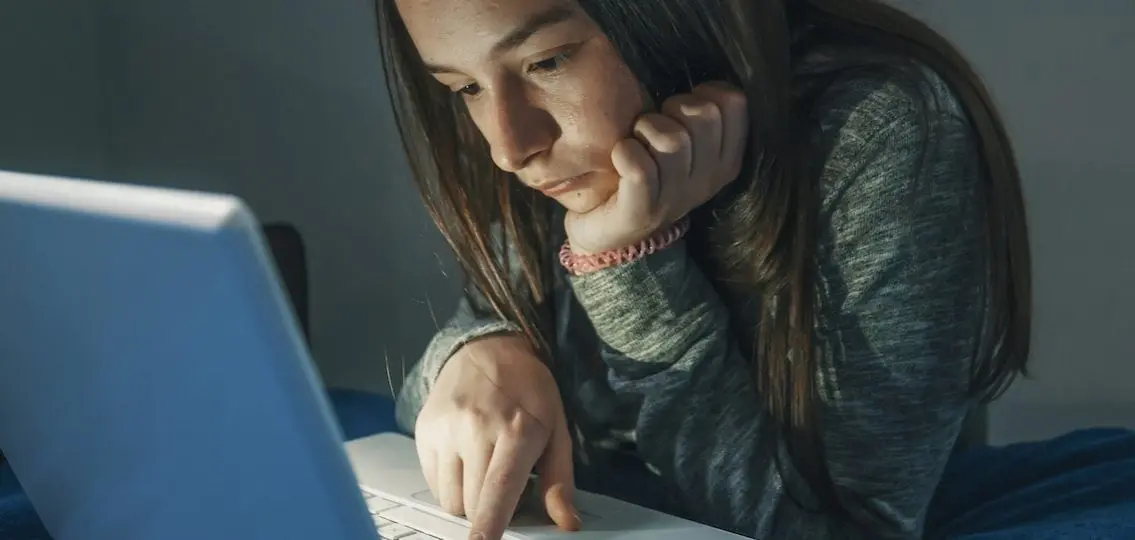Your Teen asked Rachel Simmons, author of Odd Girl Out, The Curse of the Good Girl, and Enough as She Is and co-founder of the Girls Leadership Institute, to weigh in on the role technology plays in the social order of teens. What’s the real impact of social media on teens?

Q: What’s the effect of technology on teenagers socially?
Simmons: You can’t talk about teens, and raising teens, without talking about social media. And because it is essential to teens, parents must participate. Some parents feel so overwhelmed and confused by the onslaught of gadgetry that they want to log out. They can’t. Just because something is electronic doesn’t give parents a pass not to engage. There is seamless integration between their online lives and their real lives. They constantly move between those worlds in a way that adults will never understand. Social media is the biggest and most important change in the lives of today’s adolescents.
Q: Should parents be concerned that teenagers seem to be constantly connected?
Simmons: The average pre-teen or teen is not capable of moderating their use of technology. They are addicts. Girls are addicts because they are relationship addicts and social media enables relationships. Kids desperately need parents to set limits on use. Technology is a place where you can’t be your child’s friend. I always say to parents, “If your kid likes your technology policy, you’re probably doing something wrong.” Your kid should be a little annoyed at you for your technology limits, and if she’s not, I guarantee she’s probably on it too much or she is one of those rare kids who does not want to be. Parents need to understand that, despite their love for social media, the effect of technology often end up making kids feel more insecure in the world.
Q: How does social media make teens feel insecure?
Simmons: One impact of social media is that it publicizes friendship in a way that enables comparison and competition. Now teens can look at how many friends someone else has and wonder, “Why don’t I have that many friends?” Teens can look at the number of happy birthday messages a friend received and wonder, “Why didn’t I get that many?” Teens can see friends receiving texts from someone and wonder, “Why didn’t I get a text from her?” So the public nature of friendship can make teens feel both more connected and intensely anxious and insecure. Parents need to understand that the compelling drive to stay connected produces good and bad results. The opinions of others and fear of exclusion can drive teens to be continually connected to their friends.
Q: Can social media magnify a teen’s anxieties about her peer relationships?
Simmons: Yes. Social media magnifies and enflames existing feelings and struggles, thereby causing social drama to spin out of control. For this reason, I encourage parents to say, “No.”
Q: As a parent, it’s hard to know what to allow and when to allow it.
Simmons: Parents need to evaluate and define their family values: How important is respect? How important is moderation and balance? How important is good citizenship and etiquette? Then, parents can apply these family values to the use of technology. If a family prioritizes balance and moderation, then nobody gets carte blanche access to anything, including technology. Parents should treat technology the same way they set boundaries for everything else.
Q: What signs indicate a problem?
Simmons: Parents should intervene when their teens are unable to put the technology away or when it becomes a source of drama. Girls may spend excessive time on their [devices] when they are anxious or upset. Some teens can’t separate from the phone. On the first day of my girls’ summer camp, each camper must hand me her phone. After their initial hysteria and a brief digital detox, they are actually quite happy because the phone can be a burden.
Q: Has the social hierarchy changed at all because of technology?
Simmons: Social media levels the playing field by allowing anybody to say anything and be heard. If teens share some dirt, they can be heard in a way that might not happen in real life. That’s one reason why social media can be really popular because anybody can say anything, and it doesn’t really matter who you are. For good and bad, everybody has a voice.
Q: What is the upside to everyone having a voice online?
Simmons: Kids can use social media to explore and connect with other people in a way that they can’t do in real life. Many teens, and not just ones with social challenges, have relationships with peers that don’t go beyond texting. There are now new permutations of relationships: people I text with but don’t talk to, people I am friends with on Facebook but don’t know personally, people I am friends with on Facebook but don’t say hello to in the school hallway. One eighth-grader referred to this hierarchy as her “food chain of relationships.”
Q: Does the ease of online communication inhibit social growth?
Simmons: Many teens’ social skills are likely being limited by their overuse of technology. I see teens whose social skills are very different because they lean on technology, particularly when it comes to interacting with adults. Kids email their teachers and coaches to say that they can’t come to practice or to ask the coach for more playing time. The online communication replaces the awkward and difficult personal interaction that gives kids the vital practice they need to develop effective communication skills.
Q: Are parents modeling bad behavior?
Simmons: Adults do things with technology that they would never do in real life. Adults who constantly check their phones send an unhealthy message to their teens about addiction and the inability to be present. How can parents expect teens to moderate themselves when parents can’t? Parents who are constantly online and texting, are coaching their teens to act the same way. We put so much pressure on kids and let ourselves off the hook.

Q: How are boys different than girls when it comes to technology?
Simmons: The virtual world is similar to the playground. On the playground and online, most boys are playing games and most girls are talking. Girls are more likely to carry their phones on them at all times. Girls send 50 more texts a day on average than boys. They gossip more online. And, girls are more likely to be cyber-bullied and have gossip spread about them online. Girls focus more on relationships in real life and online. Again, the Internet isn’t that different than real life.




